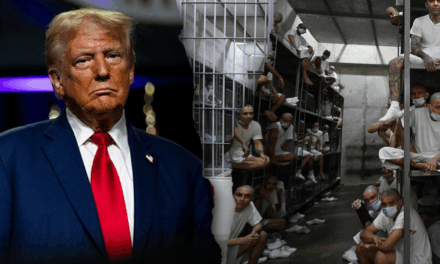In a compelling call to action that resonates with both party leaders and grassroots supporters, political commentator Van Jones has articulated a critical message for the Democratic Party as the midterm elections approach. Central to his argument is the assertion that in order to secure victories in the upcoming elections, Democrats must extend an apology to the American public. This provocative idea has sparked discussions about accountability, trust, and the political landscape that can determine the fate of numerous races across the country.
Jones, a well-known figure in political commentary and social justice advocacy, emphasized that the party’s connection with voters is crucial. He insists that acknowledging past mistakes and engaging in genuine introspection is not merely a courtesy but a necessity for building the required support base. His statements come at a time when political polarization runs high, and voter sentiment is often swayed by feelings of disenfranchisement and disappointment with established party lines.
In the current political climate, many Democrats find themselves at a crossroads. The fallout from recent legislative struggles, coupled with ongoing social issues, has left a sense of unease among constituents. Jones argues that Democrats have not sufficiently addressed the concerns of everyday Americans, particularly in relation to economic hardships, racial inequities, and health care challenges that have only deepened during recent years.
The midterm elections, often viewed as a referendum on the current administration’s performance, present a unique opportunity for the Democratic Party to reshape its narrative. In his compelling plea, Jones points out that voters have a considerable choice to make — to stand by a party that shows a genuine commitment to understanding and rectifying its past missteps or to explore alternatives that may better meet their needs.
Highlighting key issues such as inflation, public safety, and education, Jones argues that Democrats should focus on delivering concrete solutions rather than getting bogged down by intra-party squabbles or national distractions. This goes beyond mere policy proposals; it requires earning back the trust of the populace through an honest admission of where the party has fallen short.
This statement from Jones comes amidst a backdrop of disillusionment among voters. Polls indicate a growing concern among the American electorate regarding inflation rates, economic viability, and the perceived inaction in Washington. Many voters express frustration and cynicism towards political leaders who they feel don’t truly understand or prioritize the struggles faced by ordinary Americans.
Furthermore, the political landscape is heavily influenced by the grassroots movements that have emerged in the last few years. Many activists and citizens feel that the Democratic Party has not adequately responded to the urgent calls for transformative change. These activists have taken to the streets, demanding action on issues ranging from climate justice to criminal reform. Jones believes that the party’s future hinges on listening to these voices and aligning with the broader aspirations of its base.
One important aspect that Jones underscored in his discourse is the evolving nature of voter demographics. He pointed to an increasingly diverse electorate, which includes younger voters, minorities, and working-class individuals who are looking for leaders who will represent their interests authentically. This demographic shift calls for a re-evaluation of the Democratic Party’s strategies and messaging, as failing to engage these groups can lead to the erosion of support.
The urgency of the issue cannot be overstated. With the midterm elections just around the corner, the pressure is mounting for Democrats to reshape their messages and reconnect with voters who feel alienated. Incorporating an apologetic approach into their campaign strategies could provide a pathway towards rebuilding trust and fostering an environment where open dialogue is prioritized.
Moreover, Jones suggests that the process of apology should not be seen merely as a political tactic, but as a foundational step towards healing divisions within society. An authentic acknowledgment of past failures could pave the way for forgiveness and collaboration among disparate groups within the electorate. It can foster an environment where voters feel their concerns are not only heard, but valid, and where they are encouraged to be part of the solution.
Historically, political apologies have a mixed track record in terms of effectiveness. With varying levels of risk and reward, they can either catalyze a renewed connection with the electorate or reinforce perceptions of insincerity. Jones warns that the Democratic Party must be prepared to back their words with actions that reflect substantive change—steps that address the very roots of voter dissatisfaction.
As Democratic leaders contemplate their strategies moving forward, Jones’ message is likely to resonate with many who believe change is essential. His words serve as a call to recognize the power that apologies and reparative measures hold in fostering political engagement and healing societal rifts.
As the midterms draw near, the stakes only continue to rise, and the Democratic Party finds itself tasked with not only rallying its base but also appealing to undecided voters and disenfranchised citizens. The question remains whether they will heed Jones’ call for accountability and take the necessary steps towards facilitating an authentic and meaningful connection with the American people.
In the end, for the Democrats to navigate the challenges of the upcoming elections successfully, they may need to unearth uncomfortable truths, confront harsh realities, and reach out with sincere intentions of reconciliation. Re-engaging voters through heartfelt apologies could serve as a crucial component in a strategy designed to not only win elections but to foster lasting trust and unity among constituents.
As Jones articulates, the future of the party—and the values it represents—may depend on its ability to confront the past, learn from it, and move forward with humility and a commitment to genuine representation for all Americans. Whether or not these sentiments translate to effective electoral outcomes remains to be seen, but at least for now, Jones has opened a powerful dialogue about the importance of accountability and the pathway toward a more inclusive political future.
































